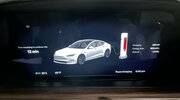White Shadow
Member
Well they are obviously not the same thing.
After pondering @bradtem 's comments, I finally reached a simple conclusion: he is right. And the rightness of his statement is not merely a reflection of the current state of affairs; it will always be that way regardless of the maturity of the EV market.
If you're paying for just energy at a supercharger then the value of a supercharger is no different from plugging in at your basic household L1 and waiting all day. And that is clearly not the case. We want L3 chargers because they are fast and we don't want to wait. Time is money, after all. Hopefully we can agree at least until this point?
So the rate at which energy is delivered, that thing we call power, is what we are after with L3. Whether you want to argue semantics of product vs service is up to you. The way I see it, the energy is a product, and the delivery of it (whether fast or slow) is a service.
Going back to my post where I used a stick of gum is a product as an analogy: yes the gum is a product, but what I was not seeing is that when I buy that stick of gum I choose a delivery service: drive there, instacart, first class mail, fedex? Whether delivery is a service or it's own product is moot: it is an inescapable part of acquiring the product and has value of its own that needs to be paid for, regardless of the value of the product being delivered.
So now "relative' means "the same thing"
Okay...lol....I feel like I'm debating mental midgets here. Electricity is absolutely a commodity. That was my point in the first place. Trying to disprove that is nothing but noise. So feel free to be noisy, okay?



